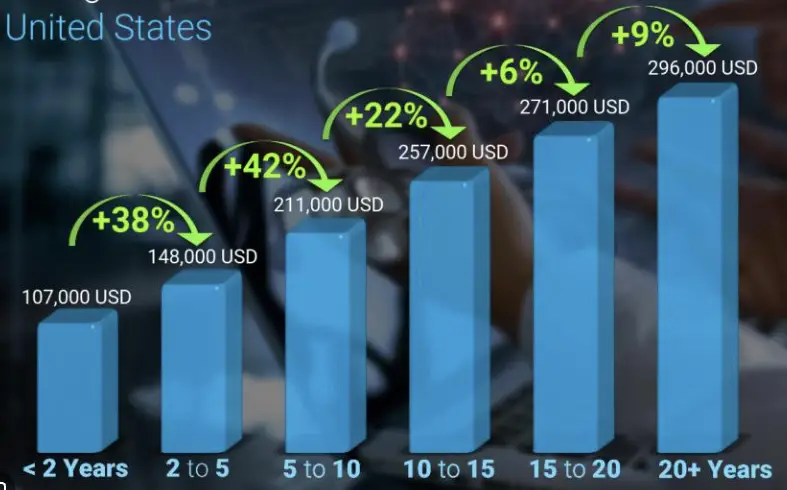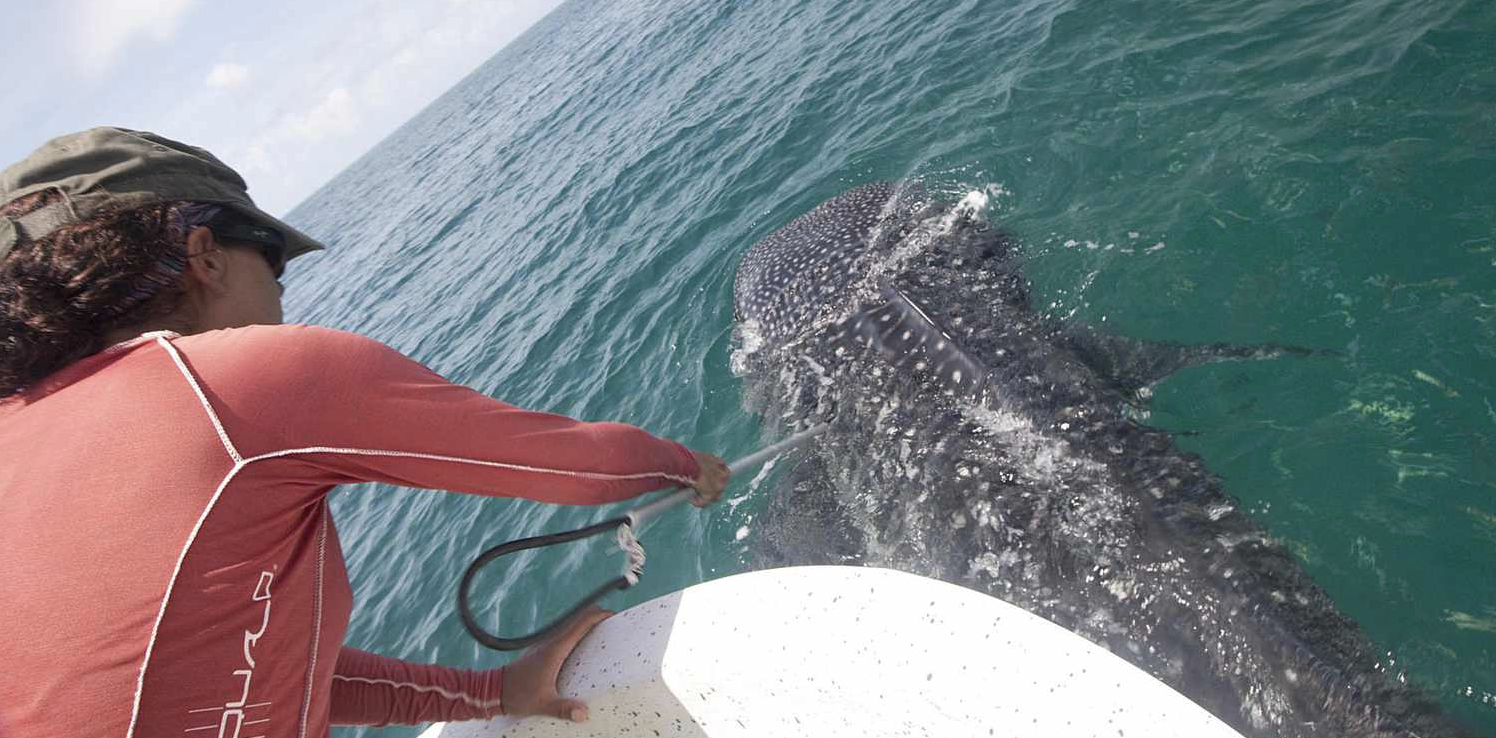I often earn from qualifying purchases. This includes Amazon Associates.
How much money does a marine biologist make? It’s a question that might have crossed your mind as you pondered the possibility of turning your love for marine life into a career.
Salaries of marine biologists may vary widely, depending on factors such as experience level, education and geographic location. In this blog post, we’ll dive deep into how much money marine biologists make on average while exploring the various aspects that influence their earning potential.
You’ll learn about entry-level salary ranges and how experienced professionals can earn up to $99k per year. We’ll also discuss the impact of higher education on earnings and niche specializations that provide a competitive edge in the field.
Geographic considerations will be addressed as well since high demand areas often offer better compensation packages than others. Finally, we’ll touch upon non-financial benefits like outdoor work environments and travel opportunities within the field before discussing how to balance passion with earning potential in marine biology careers.
If you’re curious about how much money does a marine biologist make or considering pursuing this rewarding profession yourself, keep reading to gain valuable insights into what lies beneath those waves!
Average Marine Biologist Salary: The Inside Scoop
So, you’re curious about the average marine biologist salary, huh?
Well, buckle up because we’re about to explore the depths of this fascinating career and its earning potential.


Entry-Level Salaries: Getting Your Feet Wet
The starting point for a marine biologist’s salary typically hovers around $51,032 per year. This figure represents those who are just beginning their journey into the world of marine life and ocean ecosystems.
Experienced Professionals: Riding the Wave to Success
As your experience grows within this field, so does your paycheck. In fact, seasoned marine biologists can earn up to a whopping $99k/year – not too shabby for spending your days studying our planet’s incredible underwater inhabitants.
Earning Potential Factors:
- Bachelor’s degree: A solid foundation that opens doors in various industries such as research centers or non-profit groups.
- Masters or Ph.D.: These advanced degrees can lead to higher salaries due to increased expertise and specialization.
- Niche Specialization: Focusing on specific areas within marine biology may result in better pay thanks to unique skill sets required by employers.
- Sector & Location: Public/private organizations, educational institutions, and geographic regions all impact salary ranges.
Remember that these figures are averages across multiple locations and industries. Your actual earnings may vary greatly depending on various factors such as location, level of experience, and the specific field within marine biology you choose to pursue.
Ready to dive deeper into this fascinating career?
Explore MarineCareers.net for more information on becoming a marine biologist.
Factors Influencing Marine Biologist Salaries
When it comes to a marine biologist’s salary, several factors come into play.
Let’s investigate the elements influencing marine biologist salaries, so you can make an educated decision about your professional trajectory.
Location and Regional Cost of Living Adjustments
First up: location matters.
Geographical differences can significantly affect salaries for marine biologists due to varying costs of living and job availability across regions.
Level of Education and Specialization
Your level of education plays a crucial role too.
A higher degree or specialized training often leads to increased earning potential within the field of marine biology.
- Obtain a higher-level qualification (Master’s or Ph.D.) in Marine Biology, or related disciplines – this could provide access to remunerative jobs.
- Pursue niche specializations that may be in high demand – unique expertise could give you an edge over other candidates when negotiating salaries.
- Selectively choose your work location based on job opportunities, local industries, and overall quality of life – coastal cities tend to offer more lucrative positions due to the presence of large corporations and government agencies.
Though salary may be a factor, consider the intrinsic value of studying and preserving ocean life when making your decision.
The opportunity to study fascinating ocean ecosystems and contribute to their preservation is priceless.
So when weighing your options, consider both your passion for marine life and potential earnings as you navigate this exciting field.
Ready to dive deeper into marine biology? Explore various career paths within the field here.
Impact of Higher Education on Marine Biologist Salary
Are you curious about how higher education affects the salary of a marine biologist? Well, get ready to dive deep into the world of academia and its impact on earnings.
Advanced Degrees Leading to Increased Salary Opportunities
Earning an advanced degree, such as a Master’s or Ph.D. in Marine Biology, can significantly boost your earning potential. In fact, those with these prestigious degrees often command higher salaries than their counterparts who only hold a Bachelor’s degree. Employers recognize the value of specialized knowledge and skills that come with advanced education.
Niche Specializations Providing a Competitive Edge
Beyond obtaining an advanced degree, specializing in niche areas within marine biology can also lead to higher paychecks. This is due to the unique expertise required for certain roles, such as marine mammal research, coral reef conservation, or deep-sea exploration, to name a few. Wildlife biologists with expertise in marine life are highly sought after by employers looking for individuals capable of tackling complex challenges within ocean ecosystems.
How Can You Maximize Your Earnings Potential?
- Pursue an advanced degree: Consider investing time and resources into obtaining a Master’s or Ph.D. in Marine Biology to increase your earning potential.
- Specialize in a niche area: Identify specific fields within marine biology that interest you and align with market demand, then focus on developing expertise in those areas.
- Network strategically: Attend relevant gatherings, meetings and other professional occasions to make contact with influential figures in the field and stay informed about current developments and possibilities within marine biology.
In summary, pursuing higher education can lead to increased earnings for marine biologists. However, it’s important to remember that passion for ocean conservation should always be at the heart of your career choices.
Geographic Considerations for Marine Biologist Salaries
Location, location, location. Location can be a major determinant of salary for marine biologists, with higher demand areas often providing more attractive compensation packages. Let’s dive into some of the factors that influence this difference in earnings based on geography.
High Demand Areas Offering Better Compensation Packages
Urban coastal regions tend to be hotspots for lucrative job opportunities within marine biology. This is due to larger corporations and governmental agencies focused on preserving aquatic ecosystems and resources being concentrated in these areas. The BLS states that in areas like California, Florida and Massachusetts, wildlife biologists (including marine biologists) are likely to receive higher salaries than other regions.
Rural vs Urban Settings Impacting Available Positions
Rural inland communities may provide fewer chances at competitive remuneration packages simply because there is less infrastructure or funding needed to attract top talent. In contrast, bustling urban centers often house research institutions and non-profit organizations dedicated to ocean conservation efforts – providing ample opportunities for well-paid positions within this field.
- Evaluate your willingness to relocate. Are you open to moving closer towards coastal cities where job prospects are more abundant?
- Create an impressive resume showcasing your expertise and experience. This will help you stand out in the competitive job market, regardless of location.
- Network with professionals in your desired geographic area. Building connections can lead to potential job opportunities and help you gain valuable insights into the local marine biology scene.
In conclusion, it’s essential to consider how geography may impact a marine biologist’s salary when choosing where to work or study within this fascinating field. By understanding these factors and taking actionable steps towards success, aspiring marine biologists can navigate their way through various career paths while keeping an eye on earning potential.
Non-Financial Benefits of Pursuing Marine Biology Careers
Beyond the marine biologist salary, there are numerous non-monetary benefits that make this career path truly rewarding.
Ready to explore these perks? Let’s go:
Outdoor Work Environments
Say goodbye to stuffy office spaces and fluorescent lights. As a marine biologist, you’ll have the opportunity to work outdoors amidst breathtaking ocean vistas and fascinating underwater ecosystems. Marine biologists often conduct research on boats or at coastal facilities, providing an invigorating change from traditional desk jobs.
Travel Opportunities within the Field
Pack your bags and grab your passport. A career in marine biology can take you around the world as you study various ocean ecosystems. From tropical coral reefs to frigid polar seas, each location offers unique challenges and discoveries for those passionate about preserving our planet’s aquatic treasures.
Balancing Passion with Earning Potential in Marine Biology: A Quick Note
It is essential to weigh both earning potential and passion when considering a career as a marine biologist. The rewards of this profession extend far beyond monetary gains; therefore, choosing this line of work should stem from genuine interest rather than solely focusing on salary expectations.
Balancing Passion with Earning Potential in Marine Biology
So, you’re considering a career as a marine biologist.
But before diving into the deep blue sea of marine biology, it’s essential to weigh both earning potential and passion for the subject matter.
Let’s explore how to strike that perfect balance between your love for ocean life and financial stability.
Prioritizing Personal Fulfillment Over Financial Gain
The rewards of being a marine biologist extend far beyond monetary gains. Exploring diverse ecosystems and contributing to vital conservation efforts can provide immense personal satisfaction.
To ensure long-term happiness in this field, focus on what truly ignites your passion rather than just chasing dollar signs.
Aligning Professional Goals with Intrinsic Motivations
Your motivation should stem from genuine interest in protecting our oceans and their inhabitants rather than solely focusing on salary expectations.
Create professional goals that align with your intrinsic motivations – such as working towards preserving endangered species or researching innovative ways to combat climate change impacts on ocean ecosystems.
Educate Yourself About Salary Ranges & Opportunities Within The Field
- Average Marine Biologist Salary: $53,820 per year (source: Bureau of Labor Statistics)
- Entry-Level Salaries: Averaging around $51,032 per year.
- Experienced Professionals: Earning up to $99k/year.
Bear in mind that these figures represent averages across multiple locations and industries, so actual earnings may vary greatly.
In conclusion, when choosing a career path as a marine biologist, remember that the rewards extend far beyond monetary gains. Prioritize personal fulfillment over financial gain and align your professional goals with intrinsic motivations to find true success in this fascinating field.
FAQs in Relation to How Much Money Does a Marine Biologist Make
How much money does a marine biologist make?
On average, a marine biologist in the United States earns around $51,032 per year at entry-level positions. Experienced professionals can earn up to $99k/year depending on factors such as education, specialization, and location. PayScale.
How much do marine biologists make around the world?
The salary of marine biologists varies globally based on country and cost of living. For example, in Australia, they earn an average of AUD$65k/year while in the UK it’s about £30k/year. Check out this Career Trend article for more international salary information.
Is it worth getting a marine biology degree?
A marine biology degree is worthwhile if you’re passionate about studying ocean life and are willing to prioritize personal fulfillment over financial gain. A higher level of education often leads to increased earning potential within the field. Read more about career prospects from this Study.com article.
Is a marine biologist a hard job to get?
Becoming a marine biologist can be competitive due to limited positions available compared to applicants with relevant degrees or experience; however, niche specializations may provide an edge when seeking employment opportunities. Learn more about entering this field from this Environmental Science article.
Conclusion
Overall, marine biologists can expect to earn a decent salary. Entry-level positions average around $51,032 per year, and experienced professionals can earn up to $99,000 per year. However, salaries can vary depending on factors such as location, level of education, and specialization.
While financial compensation is important, pursuing a career in marine biology also offers non-financial benefits such as working outdoors and travel opportunities within the field. It’s important for individuals to balance their passion for marine biology with their desired earning potential.
Amazon and the Amazon logo are trademarks of Amazon.com, Inc, or its affiliates.






